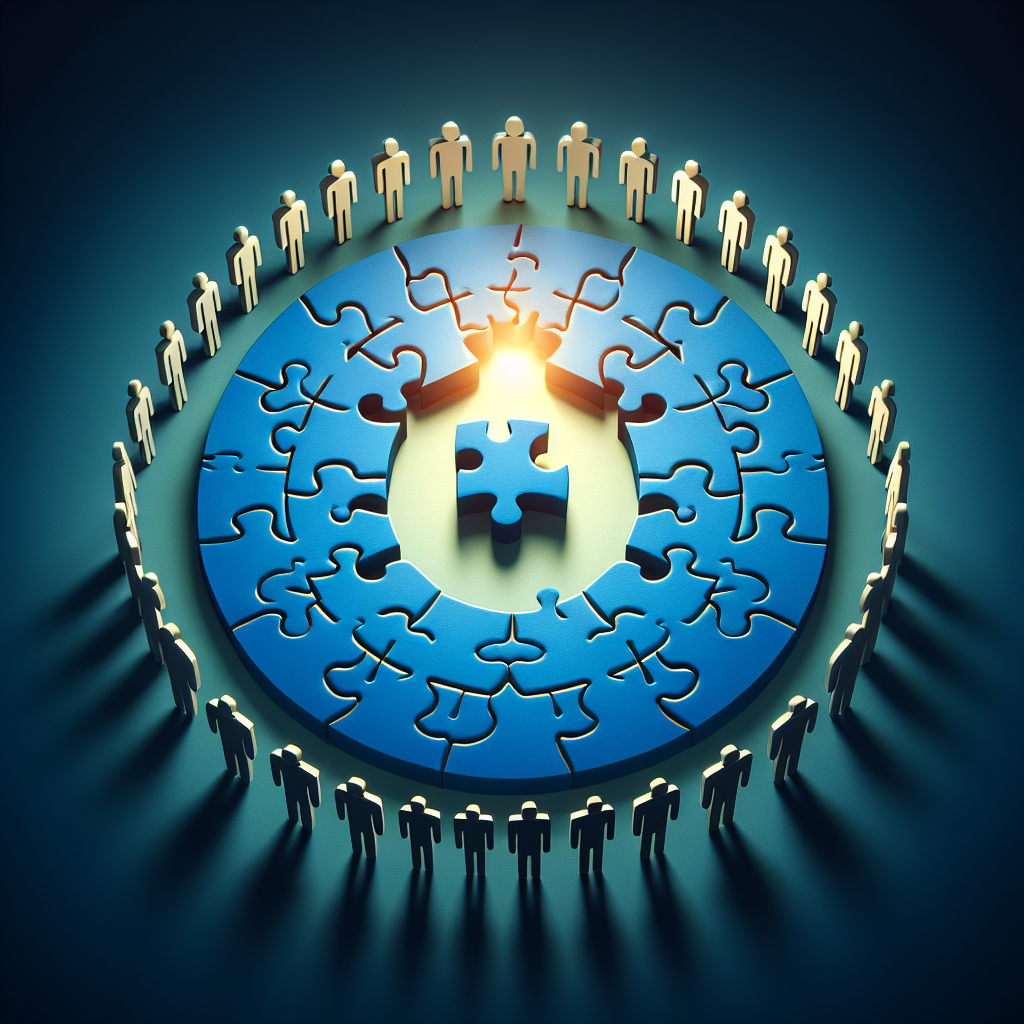In order for teams to work cohesively and achieve their goals, it is essential to develop effective conflict resolution skills. Conflict within a team is inevitable, but when managed properly, it can lead to growth and stronger relationships. This article will provide practical strategies and techniques to help you develop the necessary skills to navigate and resolve conflicts within your team. By employing these techniques, you will be able to foster a more positive and productive team environment.
- Understanding Conflict Resolution
- Importance of Conflict Resolution Skills
- Types of Conflict in Teams
- Building a Foundation for Effective Conflict Resolution
- Improving Communication Skills
- Identifying and Addressing Conflict
- Managing Emotions in Conflict Situations
- Collaborative Problem-Solving
- Negotiation and Compromise
- Managing Conflict in Virtual Teams
- Promoting a Positive Team Culture
- Continued Development and Growth
Understanding Conflict Resolution
Conflict resolution refers to the process of resolving conflicts or disagreements in a positive and constructive manner. It involves finding solutions that are mutually beneficial and address the underlying issues causing the conflict. Conflict resolution is essential in teams because it helps maintain a harmonious and productive work environment.
Importance of Conflict Resolution Skills
Conflict resolution skills are vital for teams to function effectively and achieve their goals. When conflicts arise and are left unresolved, they can escalate and negatively impact team morale, communication, and collaboration. By developing conflict resolution skills, teams can effectively manage and resolve conflicts, leading to stronger relationships, improved decision-making, and increased productivity.
Types of Conflict in Teams
Conflict can arise in teams for various reasons, and it is important to understand the different types of conflicts that can occur:
-
Task Conflict: This type of conflict occurs when team members have differing opinions, ideas, or approaches regarding the tasks or goals of the team.
-
Interpersonal Conflict: Interpersonal conflicts arise from personal differences, such as communication styles, values, or personality clashes between team members.
-
Role Conflict: Role conflicts occur when team members have conflicting expectations or misunderstandings regarding their roles, responsibilities, and authority within the team.
-
Process Conflict: Process conflicts stem from disagreements about the procedures, methods, or decision-making processes within the team.
Each type of conflict requires a different approach to resolution, and by understanding these types, teams can better address conflicts and find effective solutions.
Building a Foundation for Effective Conflict Resolution
To effectively resolve conflicts in teams, it is crucial to establish a foundation built on clear values, norms, open communication, trust, and respect.
Establishing Team Values and Norms
Teams should collaboratively establish a set of core values and norms that guide their behavior and interactions. This provides a shared framework for addressing conflicts and helps prevent conflicts from escalating.
Encouraging Open Communication
Creating an environment where open and honest communication is encouraged is essential for effective conflict resolution. Team members should feel comfortable expressing their opinions, concerns, and ideas without fear of judgment or retaliation.
Fostering Trust and Respect
Trust and respect are the cornerstones of a healthy team dynamic. Building trust requires consistent communication, reliability, and demonstrating respect for one another’s perspectives and experiences. When team members feel respected and trusted, it becomes easier to navigate and resolve conflicts peacefully.
Improving Communication Skills
Communication is a fundamental aspect of conflict resolution. Effective communication skills can prevent misunderstandings, clarify intentions, and establish common ground.
Active Listening
Active listening involves fully focusing on and comprehending what the other person is saying, both verbally and non-verbally. In conflict situations, active listening helps to understand each party’s concerns, feelings, and underlying needs, enabling the identification of mutually beneficial solutions.
Effective Verbal Communication
Clear and concise verbal communication is crucial for conflict resolution. Using “I” statements, avoiding blaming language, and focusing on problem-solving rather than personal attacks can help keep discussions productive and respectful.
Non-Verbal Communication
Non-verbal cues, such as body language and facial expressions, play a significant role in conflict resolution. Being aware of these cues and practicing positive non-verbal communication can contribute to a more constructive and empathetic approach to resolving conflicts.
Identifying and Addressing Conflict
Early recognition of conflict signs allows teams to address issues promptly and prevent them from escalating. Conflict resolution requires creating a safe and supportive environment for open discussion and finding mediation techniques.
Recognizing Early Signs of Conflict
By being attentive to changes in team dynamics, communication patterns, or noticeable tension between team members, conflicts can be identified early on. Active monitoring and keeping an open dialogue can help detect and address conflicts before they escalate.
Creating a Safe Space for Conflict Resolution
Teams should establish a safe space where conflicts can be openly discussed without fear of judgment or punishment. This entails setting ground rules for respectful dialogue, confidentiality, and emphasizing a focus on solutions rather than personal attacks.
Using Mediation Techniques
Mediation involves a neutral third party who facilitates communication and guides the conflict resolution process. Mediation techniques, such as active listening, reframing perspectives, and facilitating compromise, can help teams find common ground and reach mutually acceptable solutions.
Managing Emotions in Conflict Situations
Emotions often play a significant role in conflict situations, and effectively managing them is crucial for constructive resolution.
Recognizing and Managing Emotionally Charged Situations
Identifying emotionally charged situations is essential for conflict resolution. Teams should be aware of the signs of escalating emotions, such as heightened tension, aggression, or withdrawal. By recognizing these signs, teams can intervene early and take steps to manage the emotions involved.
Emotional Intelligence in Conflict Resolution
Emotional intelligence refers to the ability to recognize and understand emotions in oneself and others. Developing emotional intelligence allows team members to navigate conflicts with empathy, self-awareness, and the ability to regulate their own emotions.
Techniques for Emotional Regulation
Various techniques can help regulate emotions during conflict resolution, such as deep breathing, taking breaks, and reframing negative thoughts. Encouraging team members to practice these techniques can create a calmer and more rational environment for resolving conflicts.
Collaborative Problem-Solving
To resolve conflicts effectively, it is important to address the root causes and engage in collaborative problem-solving.
Identifying the Root Causes of Conflict
Understanding the underlying reasons for conflicts is crucial for finding long-term solutions. Teams should identify the root causes by openly discussing the issues, seeking different perspectives, and acknowledging each party’s needs and concerns.
Brainstorming Solutions
Once the root causes are recognized, teams can engage in brainstorming sessions to generate potential solutions. Allowing for free expression of ideas and considering diverse perspectives encourages creativity and fosters a sense of ownership in finding solutions.
Seeking Consensus
In conflict resolution, seeking consensus means finding a solution that everyone can agree upon, or at least one that everyone can live with. Through effective communication, active listening, and a willingness to compromise, teams can reach consensus and move forward together.

Negotiation and Compromise
Negotiation and compromise play crucial roles in resolving conflicts by finding win-win solutions that address the needs and interests of all parties involved.
Understanding the Importance of Win-Win Solutions
Win-win solutions prioritize cooperation and ensure that the outcomes benefit all parties involved. This approach strengthens relationships, builds trust, and fosters a positive team culture.
Finding Common Ground
Identifying common goals or interests allows teams to find areas of agreement and build on them. By focusing on shared objectives, teams can develop solutions that meet multiple needs and reduce conflict.
Reaching Mutually Beneficial Agreements
Through effective negotiation and compromise, teams can reach agreements that are fair and beneficial to all parties. This requires open communication, active listening, and a willingness to find creative solutions that address the underlying issues.
Managing Conflict in Virtual Teams
Remote work and virtual teams present unique challenges for conflict resolution. However, with the right strategies and effective online communication tools, conflicts can still be managed successfully.
Challenges of Conflict Resolution in Virtual Teams
Virtual teams face challenges such as communication barriers, time zone differences, and a lack of non-verbal cues, making conflicts more complex to address. It is crucial for virtual teams to anticipate these challenges and develop strategies to overcome them.
Effective Online Communication Tools
Utilizing effective online communication tools, such as video conferencing, instant messaging, and project management software, can help virtual teams resolve conflicts efficiently. These tools facilitate real-time communication, maintain transparency, and provide platforms for collaborative problem-solving.
Remote Conflict Resolution Strategies
To manage conflicts in virtual teams, strategies such as scheduling regular check-ins, encouraging asynchronous communication, and providing clear guidelines for online interactions are essential. Creating opportunities for open dialogue and addressing conflicts promptly can help maintain a positive virtual team environment.
Promoting a Positive Team Culture
Promoting a positive team culture is essential for conflict resolution. By fostering a supportive and inclusive environment, celebrating successes, and building resilience, teams can create a foundation for effective conflict resolution.
Encouraging a Supportive and Inclusive Environment
Teams should prioritize inclusivity, diversity, and psychological safety. Encouraging mutual respect, empathy, and valuing diverse perspectives creates an environment where conflicts are approached with understanding and open-mindedness.
Celebrating Successes and Learning from Failures
Recognizing achievements and milestones enhances team morale and reinforces the importance of teamwork. Additionally, learning from past conflicts and failures helps teams grow and adapt their conflict resolution strategies.
Building Resilience in Teams
Resilience enables teams to navigate conflicts without being derailed or disheartened. By developing resilience through team-building activities, fostering a growth mindset, and providing support during challenging times, teams can overcome conflicts and emerge stronger.
Continued Development and Growth
Conflict resolution skills require ongoing development and growth. teams should focus on providing training and education, seeking feedback, and adapting to changing team dynamics.
Providing Ongoing Training and Education
Regular training sessions or workshops focused on conflict resolution can strengthen teams’ abilities to manage conflicts effectively. These sessions can provide new insights, techniques, and strategies to address conflicts and promote continuous growth.
Seeking Feedback and Reflecting on Conflict Resolution Skills
Receiving feedback from team members about conflict resolution processes can offer valuable insights for improvement. Reflecting on team experiences, identifying areas for growth, and implementing necessary changes can enhance conflict resolution skills over time.
Adapting to Change and Evolving Team Dynamics
As teams evolve and face changing circumstances, conflict resolution strategies may need to be adapted. Embracing change, remaining flexible, and being proactive in addressing conflicts ensures that teams can effectively navigate any challenges that arise.
In conclusion, developing effective conflict resolution skills is essential for teams to maintain healthy relationships, foster collaboration, and achieve their goals. By understanding conflict resolution, building a strong foundation, improving communication skills, and employing various conflict resolution strategies, teams can successfully manage conflicts and create a positive team culture. Continued growth and adaptation ensure that teams can navigate conflicts in an ever-changing work environment and maintain a high level of productivity and cooperation.










